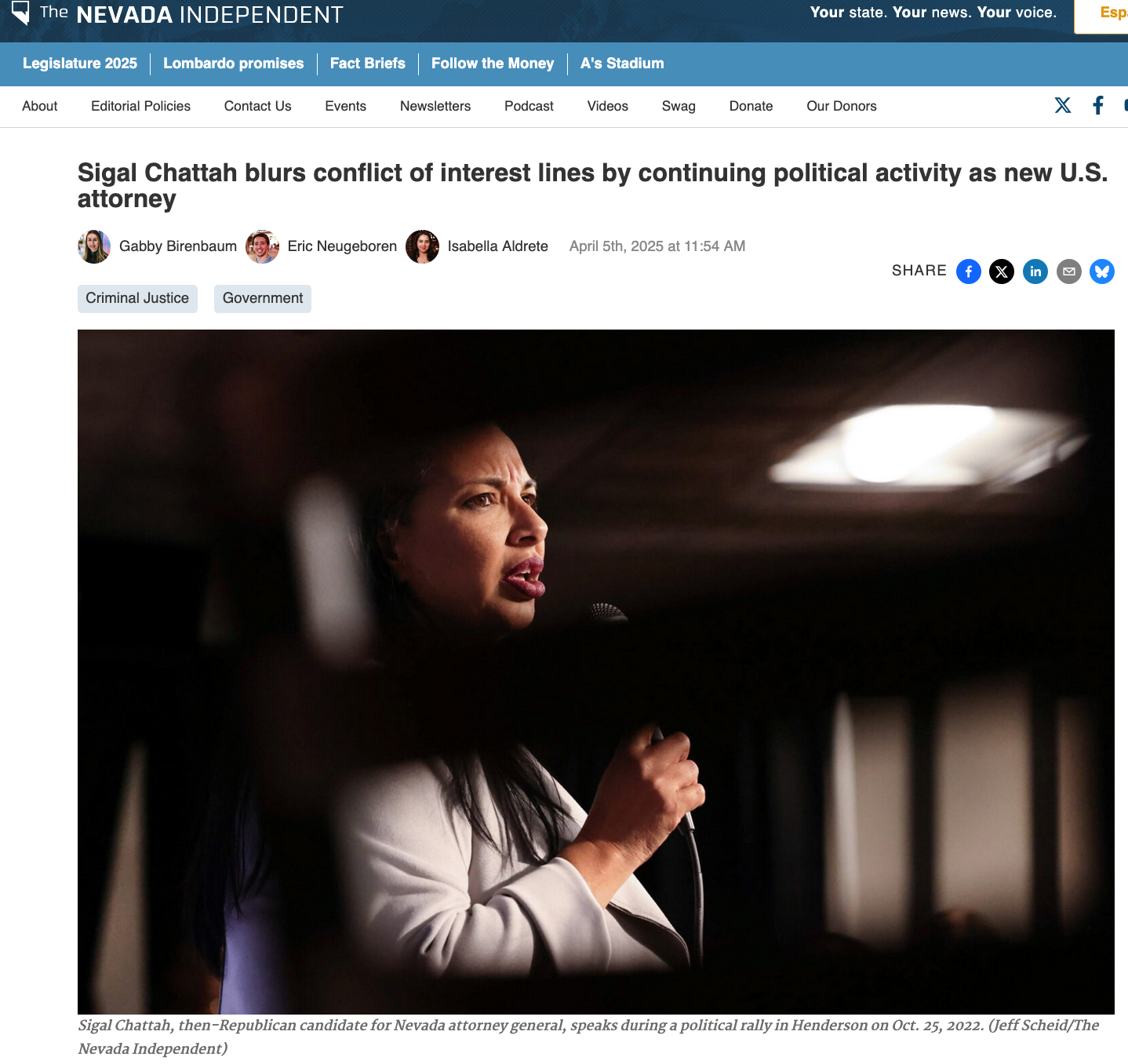I can’t tell if it’s incompetence, negligence, or dismissiveness, but Sigal Chattah made a bad move over this past weekend.
Hats off to the Nevada Independent for their reporting on this; they scored a coup. The Nevada Indy’s headline: Sigal Chattah blurs conflict of interest lines by continuing political activity as new U.S. attorney
In a seemingly direct violation of the Hatch Act, which prohibits civil-service employees in the executive branch of the federal government (such as an interim US Attorney for the District of Nevada like Sigal Chattah), except the President and Vice President, from engaging in some forms of political activity, Sigal Chattah reportedly has continued to carry on in her position as Nevada’s Republican National Committeewoman.
According to the Nevada Independent’s reporting, Sigal Chattah was “introduced virtually at a state party meeting Saturday, potentially violating Department of Justice rules against its employees participating in political activities.”
The US Office of Special Counsel offers this overview of the Hatch Act: it is a federal law that,
“limits certain political activities of federal employees … to ensure that federal programs are administered in a nonpartisan fashion, to protect federal employees from political coercion in the workplace, and to ensure that federal employees are advanced based on merit and not based on political affiliation.”
How serious is a Hatch Act violation (which has been in place since 1939)? To quote from the US Office of Special Counsel guidelines: “An employee who violates the Hatch Act is subject to a range of disciplinary actions, including:
-
Removal from Federal Service: termination of employment
-
Debarment from Federal Employment: ineligibility for future federal jobs for a period of up to 5 years
-
Suspension: temporary removal from duty without pay.Reprimand: A formal warning or censure
-
Reduction in Grade: lowering an employee’s position and salary
-
Civil Penalty: a fine, not to exceed $1,000
Pretty serious consequences.

